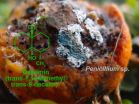MUNICH, GERMANY, December 07, 2012 (Press-News.org) In contrast to MBA programs, Doctorates of Business Administration (DBA) are not covered by internationally recognized rankings. Hence, proxies are needed to assess the quality of a program. The new platform Doctor of Business Administration Compass provides an overview of the five most important quality criteria:
1. Assess the research quality of the faculty.
2. Have a look at accredited programs.
3. Assess the reputation of a school.
4. How experienced is the school in teaching?
5. How well is the school exposed to executives?
The Doctor of Business Administration (DBA) offers executives a great opportunity: In three to four years, they can complete a doctoral degree in management without leaving their companies. In many cases, they can even design their research around a topic from within their companies so that their employer profits from the DBA studies. DBA programs differ a lot in terms of quality, however. The platform Doctor of Business Administration Compass provides an overview of more than 230 programs worldwide and guidelines on how to find a quality DBA.
The Doctor of Business Administration Compass www.dba-compass.com went online in October 2012 and provides an overview of management doctorates for professionals. It contains a database with schools and programs, background information on rankings and the difference between a DBA and a PhD as well as events and application deadlines. Further websites are: Master in Management Compass and Master of Business Administration Compass.
New Platform for Doctorates of Business Administration (DBA): How Do You Identify a Quality Program in the Absence of Rankings?
How do you assess the quality of a Doctor of Business Administration (DBA) program in the absence of rankings? The new website DBA Compass provides guidelines for professionals who look for part-time doctoral programs in management.
2012-12-07
ELSE PRESS RELEASES FROM THIS DATE:
Visionary in Unpadded Whiteboard Room Affirms 21 Dec is the Beginning of the End - Reaches Out to 99 Influencers for Their Thoughts Via Twitter
2012-12-07
Scott Townsend, a crazy visionary in an unpadded whiteboard room, says "it's the end of the world as we know it, but not like the movie."
As the 21st December 2012 nears, the world will, according to many people, mark the date when we begin to enter a new era of positive change and consciousness.
To help motivate this much-needed transformation, Townsend is starting by reaching out to 99 influential people on Twitter, each with different values, passions and beliefs to discover what they think needs to change.
Townsend hopes that reaching out to each ...
Bilirubin can prevent damage from cardiovascular disease
2012-12-06
COLUMBIA, Mo. -- Each year, about 610,000 Americans suffer their first heart attack, according to the Centers for Disease Control and Prevention. Heart attacks and other symptoms of cardiovascular disease can be caused when blockage occurs in the arteries. In a new study from the University of Missouri, a scientist has discovered a natural defense against arterial blockage: bilirubin.
Bilirubin is typically something parents of newborns hear about when their children are diagnosed with jaundice. Generated during the body's process to recycle worn-out red blood cells, ...
OHSU study shows that a molecule critical to nerve cells increases drammatically during hypertension
2012-12-06
Researchers at Oregon Health & Science University's School of Dentistry have made an important connection between a molecule critical to nerve cells and high blood pressure. Production of the molecule Brain-Derived Neurotrophic Factor (BDNF) appears to increase dramatically in blood pressure-sensing nerve cells during hypertension. The study, published online in the Journal of Neuroscience Research, may someday have implications for the prevention and treatment of high blood pressure, which affects about one in three adults in the United States.
BDNF is essential to ...
Protein controlling glucose metabolism also a tumor suppressor
2012-12-06
A protein known to regulate how cells process glucose also appears to be a tumor suppressor, adding to the potential that therapies directed at cellular metabolism may help suppress tumor growth. In their report in the Dec. 7 issue of Cell, a multi-institutional research team describes finding that cells lacking the enzyme SIRT6, which controls how cells process glucose, quickly become cancerous. They also found evidence that uncontrolled glycolysis, a stage in normal glucose metabolism, may drive tumor formation in the absence of SIRT6 and that suppressing glycolysis ...
European Romani exodus began 1,500 years ago, DNA evidence shows
2012-12-06
Despite their modern-day diversity of language, lifestyle, and religion, Europe's widespread Romani population shares a common, if complex, past. It all began in northwestern India about 1,500 years ago, according to a study reported on December 6th in Current Biology, a Cell Press publication, that offers the first genome-wide perspective on Romani origins and demographic history.
The Romani represent the largest minority group in Europe, consisting of approximately 11 million people. That means the size of the Romani population rivals that of several European countries, ...
At high altitude, carbs are the fuel of choice
2012-12-06
Mice living in the high-altitude, oxygen-starved environment of the Andean mountains survive those harsh conditions by fueling their muscles with carbohydrates. The findings, reported online on December 6 in Current Biology, a Cell Press publication, provide the first compelling evidence of a clear difference in energy metabolism between high- and low-altitude native mammals.
"The high-altitude mice we examined in this study are a rare exception to a general exercise fuel use pattern seen in lowland mammals," said Marie-Pierre Schippers of McMaster University. "Studying ...
Disgust circuit: Flies sniff out and avoid spoiled food
2012-12-06
VIDEO:
The ability to detect rotten food is so crucial for survival that even flies have a dedicated neural circuit to do just that, according to a study published on December...
Click here for more information.
The ability to detect rotten food is so crucial for survival that even flies have a dedicated neural circuit to do just that, according to a study published on December 6th in the Cell Press journal Cell. The brain circuit allows flies to avoid feeding and laying ...
Mexican paradox: While opinion surveys overestimate abortions 10-fold, abortion mortality clearly decreases
2012-12-06
This press release is available in Spanish and French. A collaborative study conducted in Mexico by researchers from the West Virginia University-Charleston (US), Universidad Popular Autónoma del Estado de Puebla (México), Universidad de Chile and the Institute of Molecular Epidemiology of the Universidad Católica de la Santísima Concepción (Chile), revealed that opinion surveys used by researchers from the Guttmacher Institute overestimated figures of induced abortion in the Federal District of Mexico (Mexico DF) up to 10-fold. The research recently published in the International ...
A direct line through the brain to avoid rotten food -- a full STOP signal for Drosophila
2012-12-06
VIDEO:
Bill Hansson and Marcus Stensmyr explain their results now published in CELL.
Click here for more information.
Consuming putrid food can be lethal as it allows bacterial pathogens to enter the digestive system. To detect signs of decay and thus allowing us and other animals to avoid such food poisoning is one of the main tasks of the sense of smell. Behavioral scientists and neurobiologists at the Max Planck Institute for Chemical Ecology in Jena, Germany, have ...
Scientists identify molecules in the ear that convert sound into brain signals
2012-12-06
LA JOLLA, CA – December 6, 2012 – For scientists who study the genetics of hearing and deafness, finding the exact genetic machinery in the inner ear that responds to sound waves and converts them into electrical impulses, the language of the brain, has been something of a holy grail.
Now this quest has come to fruition. Scientists at The Scripps Research Institute (TSRI) in La Jolla, CA, have identified a critical component of this ear-to-brain conversion—a protein called TMHS. This protein is a component of the so-called mechanotransduction channels in the ear, which ...
LAST 30 PRESS RELEASES:
Enzymes work as Maxwell's demon by using memory stored as motion
Methane’s missing emissions: The underestimated impact of small sources
Beating cancer by eating cancer
How sleep disruption impairs social memory: Oxytocin circuits reveal mechanisms and therapeutic opportunities
Natural compound from pomegranate leaves disrupts disease-causing amyloid
A depression treatment that once took eight weeks may work just as well in one
New study calls for personalized, tiered approach to postpartum care
The hidden breath of cities: Why we need to look closer at public fountains
Rewetting peatlands could unlock more effective carbon removal using biochar
Microplastics discovered in prostate tumors
ACES marks 150 years of the Morrow Plots, our nation's oldest research field
Physicists open door to future, hyper-efficient ‘orbitronic’ devices
$80 million supports research into exceptional longevity
Why the planet doesn’t dry out together: scientists solve a global climate puzzle
Global greening: The Earth’s green wave is shifting
You don't need to be very altruistic to stop an epidemic
Signs on Stone Age objects: Precursor to written language dates back 40,000 years
MIT study reveals climatic fingerprints of wildfires and volcanic eruptions
A shift from the sandlot to the travel team for youth sports
Hair-width LEDs could replace lasers
The hidden infections that refuse to go away: how household practices can stop deadly diseases
Ochsner MD Anderson uses groundbreaking TIL therapy to treat advanced melanoma in adults
A heatshield for ‘never-wet’ surfaces: Rice engineering team repels even near-boiling water with low-cost, scalable coating
Skills from being a birder may change—and benefit—your brain
Waterloo researchers turning plastic waste into vinegar
Measuring the expansion of the universe with cosmic fireworks
How horses whinny: Whistling while singing
US newborn hepatitis B virus vaccination rates
When influencers raise a glass, young viewers want to join them
Exposure to alcohol-related social media content and desire to drink among young adults
[Press-News.org] New Platform for Doctorates of Business Administration (DBA): How Do You Identify a Quality Program in the Absence of Rankings?How do you assess the quality of a Doctor of Business Administration (DBA) program in the absence of rankings? The new website DBA Compass provides guidelines for professionals who look for part-time doctoral programs in management.




